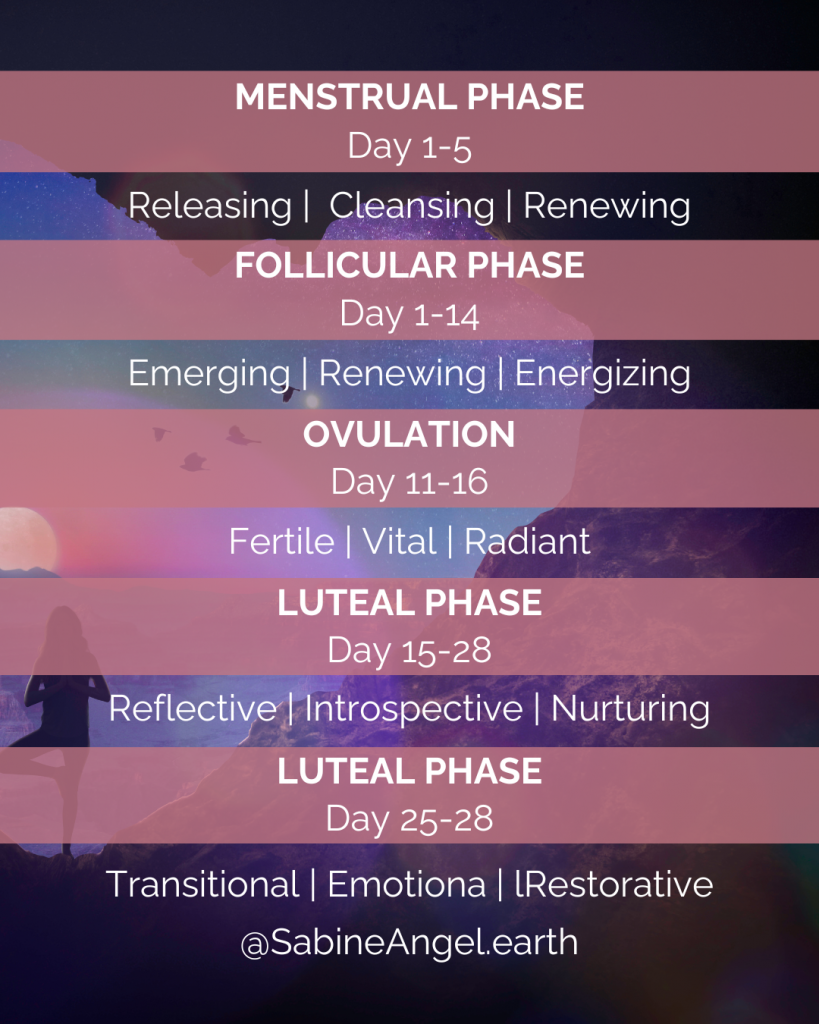Exploring the Phases of the Menstrual Cycle: Understanding its Dynamics and Influences
The female menstrual cycle is a monthly process that the female body goes through to prepare for the possibility of pregnancy. It involves a series of physiological changes in the reproductive system, primarily in the ovaries and the uterus. The average cycle lasts about 28 days, though it can vary from 21 to 35 days in adults and from 21 to 45 days in young teens.

Phases of the Menstrual Cycle
The menstrual cycle is divided into several phases, each characterized by specific hormonal and physical changes:
Menstrual Phase
- Duration: About 3-7 days.
- Begins on the first day of menstruation, where the lining of the uterus (endometrium) breaks down and is shed, resulting in bleeding.
- Hormone levels (estrogen and progesterone) are low.
Follicular Phase
- Overlaps with the menstrual phase, starting on day 1 of menstruation and lasting until ovulation (around day 14).
- The pituitary gland secretes follicle-stimulating hormone (FSH), stimulating the ovaries to produce follicles, each containing an egg.
- One follicle becomes dominant and prepares to release an egg.
- The endometrium starts to thicken in preparation for a potential pregnancy.
- Estrogen levels rise.
Ovulation
- Occurs roughly in the middle of the cycle (day 14 in a 28-day cycle).
- Triggered by a surge in luteinizing hormone (LH).
- The dominant follicle releases its egg into the fallopian tube, where it can be fertilized by sperm.
- Estrogen peaks, and progesterone starts to rise.
Luteal Phase
- Lasts from ovulation until the start of menstruation (about 14 days).
- The empty follicle transforms into the corpus luteum, which secretes progesterone and some estrogen.
- These hormones further thicken the uterine lining, preparing it to support a fertilized egg.
- If fertilization does not occur, the corpus luteum breaks down, leading to a drop in progesterone and estrogen, triggering menstruation and the start of a new cycle.
Hormonal Regulation
The menstrual cycle is regulated by a complex interplay of hormones:
- Gonadotropin-releasing hormone (GnRH): Secreted by the hypothalamus, it stimulates the pituitary gland to release FSH and LH.
- Follicle-stimulating hormone (FSH): Stimulates the growth of ovarian follicles.
- Luteinizing hormone (LH): Triggers ovulation and the development of the corpus luteum.
- Estrogen: Regulates the growth of the uterine lining and various aspects of the reproductive system.
- Progesterone: Prepares the uterus for a fertilized egg and maintains the uterine lining during early pregnancy.

Menstrual Cycle and Fertility
Understanding the menstrual cycle is crucial for fertility awareness. The “fertile window” is a short span in the cycle, typically around ovulation, when intercourse is most likely to result in pregnancy. This window includes the day of ovulation and the five days beforehand, considering the lifespan of sperm (up to 5 days in the female reproductive tract) and the egg (about 24 hours after ovulation).
Common Issues
Some women may experience issues related to their menstrual cycle, such as irregular cycles, painful periods (dysmenorrhea), heavy bleeding (menorrhagia), or premenstrual syndrome (PMS), affecting their physical and emotional well-being. Conditions like polycystic ovary syndrome (PCOS) and endometriosis can also affect the menstrual cycle and fertility.

Conclusion
The menstrual cycle is a vital part of female reproductive health, reflecting both physical and hormonal changes. Understanding its phases and regulation can help in managing reproductive health, recognizing abnormalities, and planning for pregnancy.


